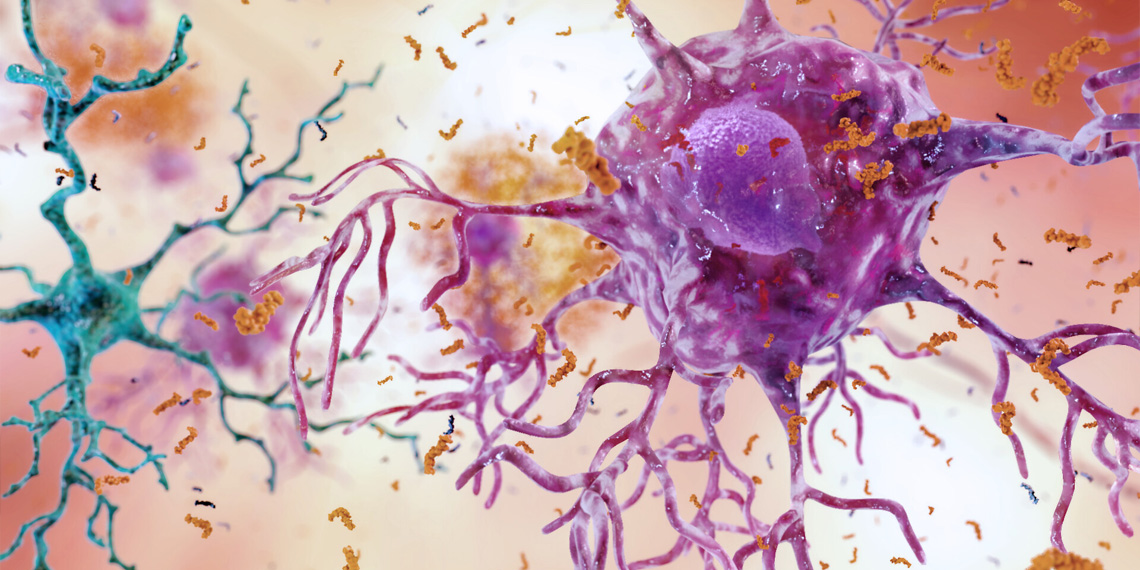Summary: A new study revealed significant risks associated with antipsychotic use in dementia patients, including increased chances of stroke, heart failure, pneumonia, and other serious conditions. The research analyzed data from 173,910 dementia patients in England, tracking those prescribed antipsychotics post-diagnosis against those who were not.
The findings indicate that these risks are most pronounced shortly after beginning treatment, suggesting a need for cautious use and frequent reevaluation of antipsychotic therapies in this population. This study underscores the importance of balancing potential benefits with the risks when considering antipsychotic treatments for behavioral and psychological symptoms of dementia.
Key Facts:
- The study analyzed health records from nearly 174,000 dementia patients, comparing those prescribed antipsychotics to those who were not.
- Antipsychotic use was linked to elevated risks of multiple serious health outcomes, with the highest risks observed during the first three months of treatment.
- The research suggests one additional case of pneumonia for every 9 patients treated with antipsychotics over the first six months, and one additional heart attack for every 167 patients treated.
Source: BMJ
Antipsychotic use in people with dementia is associated with elevated risks of a wide range of serious adverse outcomes including stroke, blood clots, heart attack, heart failure, fracture, pneumonia, and acute kidney injury, compared with non-use, finds a study published by The BMJ today.
These findings show a considerably wider range of harms associated with antipsychotic use in people with dementia than previously acknowledged in regulatory alerts, with risks highest soon after starting the drugs, underscoring the need for increased caution in the early stages of treatment.
Despite safety concerns, antipsychotics continue to be widely prescribed for behavioural and psychological symptoms of dementia such as apathy, depression, aggression, anxiety, irritability, delirium, and psychosis.
Previous regulatory warnings when prescribing antipsychotics for these symptoms are based on evidence of increased risks for stroke and death, but evidence of other adverse outcomes is less conclusive amongst people with dementia.
To address this uncertainty, researchers set out to investigate the risks of several adverse outcomes potentially associated with antipsychotic use in people with dementia.
The outcomes of interest were stroke, major blood clots (venous thromboembolism), heart attack (myocardial infarction), heart failure, irregular heart rhythm (ventricular arrhythmia), fractures, pneumonia, and acute kidney injury.
Using linked primary care, hospital, and mortality data in England, they identified 173,910 people (63% women) diagnosed with dementia at an average age of 82 between January 1998 and May 2018 who had not been prescribed an antipsychotic in the year before their diagnosis.
Each of the 35,339 patients prescribed an antipsychotic on or after the date of their dementia diagnosis was then matched with up to 15 randomly selected patients who had not used antipsychotics.
Patients with a history of the specific outcome under investigation before their diagnosis were excluded from the analysis of that outcome.
The most commonly prescribed antipsychotics were risperidone, quetiapine, haloperidol, and olanzapine, which together accounted for almost 80% of all prescriptions.
Potentially influential factors including personal patient characteristics, lifestyle, pre-existing medical conditions, and prescribed drugs were also taken into account.
Compared with non-use, antipsychotic use was associated with increased risks for all outcomes, except ventricular arrhythmia. For example, in the first three months of treatment, rates of pneumonia among antipsychotic users were 4.48% vs 1.49% for non-users. At one year, this rose to 10.41% for antipsychotic users vs 5.63% for non-users.
Risks were also high among antipsychotic users for acute kidney injury (1.7-fold increased risk), as well as stroke and venous thromboembolism (1.6-fold increased risk) compared with non-users.
For almost all outcomes, risks were highest during the first week of antipsychotic treatment, particularly for pneumonia.
The researchers estimate that over the first six months of treatment, antipsychotic use might be associated with one additional case of pneumonia for every 9 patients treated, and one additional heart attack for every 167 patients treated. At two years, there might be one additional case of pneumonia for every 15 patients treated, and one additional heart attack for every 254 patients treated.
This is an observational study so no firm conclusions can be drawn about cause and effect, and the researchers cautioned that some misclassification of antipsychotic use may have occurred. And although they adjusted for a range of factors, they can’t rule out the possibility that other unmeasured variables may have affected their results.
However, this was a large analysis based on reliable health data that investigated a wide range of adverse events and reported both relative and absolute risks over several time periods.
As such, the researchers say antipsychotics are associated with a considerably wider range of serious adverse outcomes than previously highlighted in regulatory alerts, with the highest risks soon after starting treatment, and are therefore of direct relevance to guideline developers, regulators, clinicians, patients and their carers.
Any potential benefits of antipsychotic treatment need to be weighed against risk of serious harm and treatment plans should be reviewed regularly, they add.
The findings of this study will equip healthcare professionals with more nuanced data to help guide personalised treatment decisions, say US researchers in a linked editorial.
They explain that international guidelines advise restricting use to adults with severe behavioural and psychological symptoms of dementia, but the rate of prescribing has risen in recent years, partly due to the relative scarcity of effective non-drug alternatives and the substantial resources needed to implement them.
“Increased priority on more patient centric care, tailored care plans, regular reassessment of management options, and a move away from the overprescription of antipsychotics is overdue,” they conclude.
About this neuropsychopharmacology and dementia research news
Author: BMJ Media Relations
Source: BMJ
Contact: BMJ Media Relations – BMJ
Image: The image is credited to Neuroscience News
Original Research: Open access.
“Multiple adverse outcomes associated with antipsychotic use in people with dementia: population based matched cohort study” by Pearl L H Mok et al. BMJ
Abstract
Multiple adverse outcomes associated with antipsychotic use in people with dementia: population based matched cohort study
Objective
To investigate risks of multiple adverse outcomes associated with use of antipsychotics in people with dementia.
Design
Population based matched cohort study.
Setting
Linked primary care, hospital and mortality data from Clinical Practice Research Datalink (CPRD), England.
Population
Adults (≥50 years) with a diagnosis of dementia between 1 January 1998 and 31 May 2018 (n=173 910, 63.0% women). Each new antipsychotic user (n=35 339, 62.5% women) was matched with up to 15 non-users using incidence density sampling.
Main outcome measures
The main outcomes were stroke, venous thromboembolism, myocardial infarction, heart failure, ventricular arrhythmia, fracture, pneumonia, and acute kidney injury, stratified by periods of antipsychotic use, with absolute risks calculated using cumulative incidence in antipsychotic users versus matched comparators. An unrelated (negative control) outcome of appendicitis and cholecystitis combined was also investigated to detect potential unmeasured confounding.
Results
Compared with non-use, any antipsychotic use was associated with increased risks of all outcomes, except ventricular arrhythmia. Current use (90 days after a prescription) was associated with elevated risks of pneumonia (hazard ratio 2.19, 95% confidence interval (CI) 2.10 to 2.28), acute kidney injury (1.72, 1.61 to 1.84), venous thromboembolism (1.62, 1.46 to 1.80), stroke (1.61, 1.52 to 1.71), fracture (1.43, 1.35 to 1.52), myocardial infarction (1.28, 1.15 to 1.42), and heart failure (1.27, 1.18 to 1.37).
No increased risks were observed for the negative control outcome (appendicitis and cholecystitis). In the 90 days after drug initiation, the cumulative incidence of pneumonia among antipsychotic users was 4.48% (4.26% to 4.71%) versus 1.49% (1.45% to 1.53%) in the matched cohort of non-users (difference 2.99%, 95% CI 2.77% to 3.22%).
Conclusions
Antipsychotic use compared with non-use in adults with dementia was associated with increased risks of stroke, venous thromboembolism, myocardial infarction, heart failure, fracture, pneumonia, and acute kidney injury, but not ventricular arrhythmia. The range of adverse outcomes was wider than previously highlighted in regulatory alerts, with the highest risks soon after initiation of treatment.

Rachel Carter is a health and wellness expert dedicated to helping readers lead healthier lives. With a background in nutrition, she offers evidence-based advice on fitness, nutrition, and mental well-being.



/cdn.vox-cdn.com/uploads/chorus_asset/file/24016883/STK093_Google_06.jpg)




